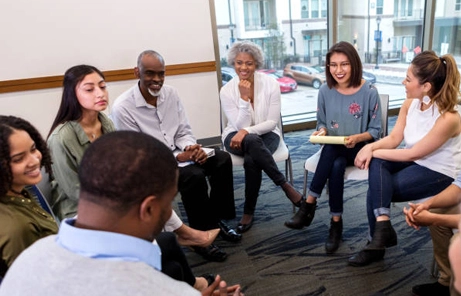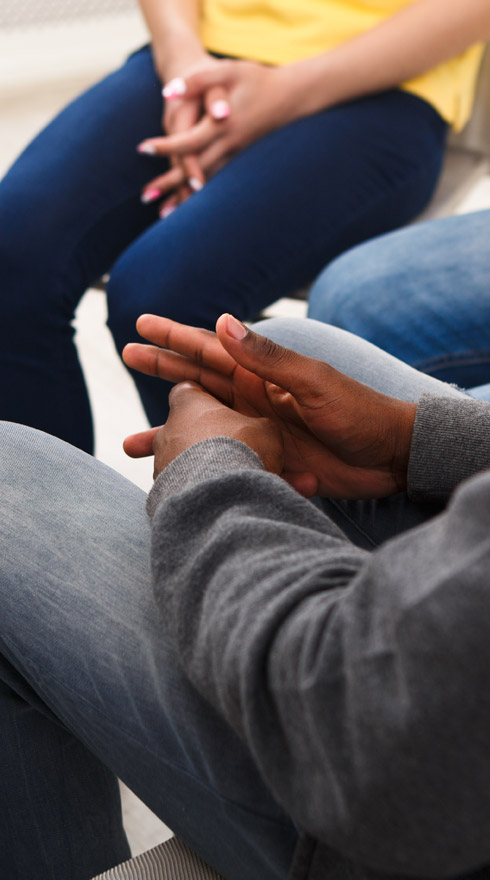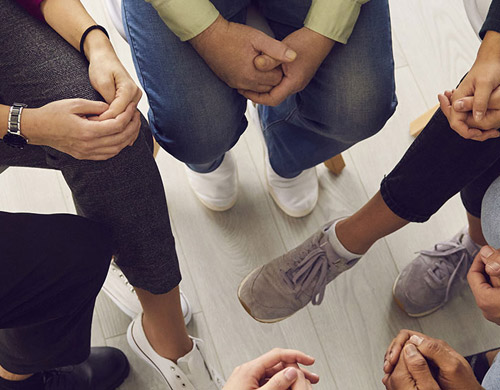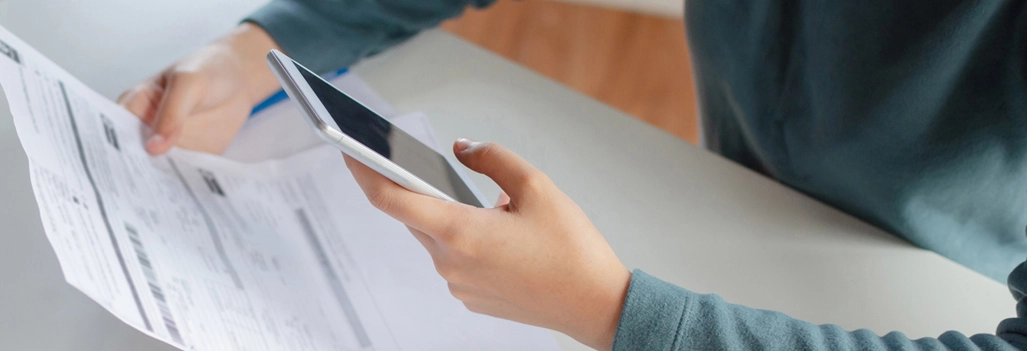If you or someone you care about is struggling with drug or alcohol use disorder, it may seem like everything feels so hopeless and you’re unsure as to where to begin. You can treat dependence even though it is a disease, and long term recovery is attainable through professional addiction treatment intervention strategies.
Discover more about how integrated rehabilitation services can assist yourself or a loved one in beginning and maintaining recovery from substance dependence.
What is Addiction Rehab (Rehabilitation)?
Addiction ‘rehab’ is a holistic treatment package that utilizes both the therapeutic and medical interventions to treat legal, illegal and recreational substance dependencies. Addiction Rehab is more effective when it is tailored to your individual needs and incorporates a medically-managed detox, inpatient and outpatient services, as well as aftercare support.

Facts & Statistics about Addiction in San Jose
Prevalence of Substance Use Disorder, by Drug Type
(IN THOUSANDS)
- 2,7578.5%Any Substance
- 2,0886.4%Alcohol
- 1,0683.3%Ilicit Drugs
- 2060.6%Pain Medication
Drug- and Alcohol-Induced Deaths by Age Group, California, 2016
- Alcohol-Induced
- Drug-Induced
- 18 to 250.5
- 9.6
- 26 to 354.3
- 13.9
- 36 to 6424.2
- 22.9
- 65+23.7
- 9.4
Drug Use, by Selected Type and Age Group California, 2015 to 2016
- 12 to 17
- 18 to 25
- 26+
- Marijuana*13.2%
- 34.0%
- 13.5%
- Misuse of Pain Medications3.5%
- 8.0%
- 4.3%
- Cocaine0.8%
- 7.2%
- 1.8%
- Heroin0%
- 0.4%
- 0.2%
What are the treatment options available in San Jose?
By integrating treatment options, treatment experts can help you to isolate and treat the primary causes of your substance use disorders. Even though addiction symptoms need to be tackled, life skills should also be encouraged in order to focus on the causes of your addiction issues.

Private Residential Programs
Residential rehab programs require you to stay at the treatment center and take part in your treatments on-site. Access to 24/7 support and addiction treatment is one of the major benefits.
If you stay at a rehab center you are away from most of the triggers in your home environment that could encourage your substance abuse. If you stay in a controlled environment that is designed to be supportive, you have a better chance of successfully completing your addiction treatment program without relapse and its potential dangers.
A residential program provides the best outcome when you have a dual diagnosis, an intense substance dependency or co-occurring disorders. You can take the initial steps to sobriety by enrolling in a residential program, however to overcome the challenges of the early stages of addiction recovery, you have to commit to a new life of sobriety. Upon completion of your inpatient rehab program, you must transition towards further independence as you set goals for your new sober life.
Do You Need Help?
Our addiction advisers are here to help you.

Sober Living Programs
You can build the skills needed to stay sober by participating in a sober living program, which will support you through the early stages of recovery. This is achieved by:
- A house manager to check in on you regularly
- Establishing boundaries for acceptable behavior in recovery
- Receiving support and companionship from others who share similar life experiences
Outpatient Programs
Outpatient rehab programs provide flexibility because you can carry on attending job or family obligations, and visit the rehab center for treatments.
Outpatient programs are best known for:
- Education on the abuse of drugs
- Group therapy and individual sessions as vehicles for addiction recovery – You must be enrolled in an outpatient program for a minimum of three months, and may remain in it for a year if necessary.
Detox Only Programs
A detox program is the first step in rehab and is performed to address your physical dependency on a substance by removing any trace of it from your body. Withdrawal symptoms are the body’s natural response to detoxification, as it begins getting used to functioning without substances.
This starts the process of your rehab journey, following which you will come to terms with and overcome the root causes of your psychological dependence to avoid repeating the same cycle. Many drugs result in withdrawal and cravings for a long time after they have been removed from your system. Developing the necessary skills can help you to limit your risk of relapse as you focus on your new life.
Paying for Private Treatment
The private rehab costs may be claimed back through your health insurance or paid directly. Many insurance companies will cover at least parts of your rehab treatment, including medical detox, rehab programs, and any aftercare provisions you may need. The amount of cover offered by your policy is set by your provider and the policy agreement. We recommend that you confirm the amount of cover you can claim before you take part in a program.
You can visit our Verify Your Insurance page for more details on the cover that is available to you. If you do not want cover from your insurance provider, you will need to pay the treatment centre directly. Some rehab centers may extend payment plans when clients find the costs unaffordable upfront.
State Funded Programs
If you want to overcome your substance or alcohol problems but have limited resources to pay for private rehab, you can apply for a state-funded rehabilitation program. With the help of funds from a combination of state, federal and Medicaid budgets, these rehab programs will remove hurdles to rehab by providing:
- Medically-assisted detox
- Addiction Rehabilitation and aftercare services.
State-funded treatment programs are available to people who have no private health insurance or who reside in low income households. During the application process you will be asked for:
- Medical records that highlights your addiction issues
- Evidence of residence
- Proof of income
- Certification that you live legally in the US
Further details about the application process can be found here. You can also locate direct details to contact your state agency by clicking here.

The following state-funded addiction rehab programs are available in San Jose:
Pathway Society Inc Residential
102 South 11th Street, San Jose, CA 95112
408-998-5191
www.pathwaysociety.orgNew Life Recovery Centers Inc
473 North San Pedro Street, San Jose, CA 95110
408-297-1182
www.newliferecoverycenters.comSupport Systems Homes Inc Alcohol and Drug Treatment Center
264 North Morrison Avenue, San Jose, CA 95126
408-370-9688
www.drug-rehabilitation.com
Maintaining Addiction Recovery in San Jose
You may experience some initial challenges when first leaving treatment. At rehab you were in a professionally supported, safe environment. After leaving the rehab center you may encounter unanticipated challenges that you are not prepared for. Long term recovery is more challenging if you have a severe dependency or if you return to your new life without social support structures in place. Guidance and aftercare support is integral in the early stages of recovery to help prevent relapse.
The following AA/NA meetings are available in San Jose:
Willow Glen Home Group
Varied Format and Wheelchair:
1195 Clark St, San Jose, CA, 95125
Monday: 12:30 pm – 1:30 pm
http://www.sjna.org/Newcomer Workshop
Discussion:
1100 Shasta Ave, San Jose, CA, 95126
Thursday: 6:00 pm – 7:00 pm
http://www.sjna.org/AA - After Work Topic Meeting
Open, Digital Basket and Wheelchair Access:
1954 Camden Avenue, San Jose, CA, 95101
Monday: 6:00 pm – 7:00 pm
https://alcoholicsanonymous.com/aa-meeting/
Aftercare & Alumni Programs
Aftercare programs extend your rehab program once you return to your daily life. As many as 60% of people in recovery will relapse because of the unpredictable changes they experience, so enrolling in aftercare programs can improve your chance of staying sober. Once you reach the end of your treatment program you must consider the counseling and therapies most beneficial to long-term sobriety and an aftercare package will be developed to support you.
Alumni programs are an extra bonus to completing rehab and allows you community based support with former clients and staff. You can participate in Alumno events, join meetings and receive advice and encouragement from others who are also in active recovery. This gives you an ideal opportunity to reciprocate and offer encouragement to other members.
Support Groups (Fellowship Meetings)

Support groups will always be a great resource because they integrate social responsibility into addiction recovery. Recovery support groups like AA (Alcoholics Anonymous) and NA (Narcotics Anonymous) facilitate regular support using the 12 step principles and regular meetings. By attending nearby support group sessions you will hear, and understand, the lived experiences of other members. Many people in recovery attend nearby meetings to assist them in their recovery journey. Support groups provide them with the necessary tools tools to stay away from substances, allowing them to be accountable for their actions to themselves and others.
Support for Families & Children Affected by Addiction
Each person in a family is affected, to different degrees, by the individual struggling with addiction. Help and support is just as vital for all family members as it is for the individual with the dependency. Support groups for families has two key benefits: you can help yourself and the individual with the addiction. Examples of Family and Child Support Groups include:
- Parents of Addicted Loved Ones
- SMART Recovery Family & Friends
- NAMI Family Support Groups
- Al-Anon
- Families Anonymous
- Alateen
- Nar-Anon










